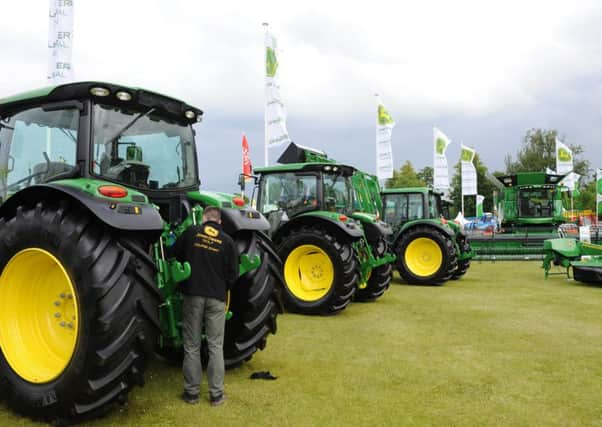Let's be Candide: our farmers are optimists at heart
This article contains affiliate links. We may earn a small commission on items purchased through this article, but that does not affect our editorial judgement.


When I first read it as a young journalist being weaned on council meetings, farming events and claims about pedigree livestock I knew how he felt, but that’s by the way.
Candide learns life’s lessons gradually and often painfully, as most of us do. But throughout the short book his friend Dr Pangloss insists that no matter how bad things are – and as he’s lame, maimed, blinded, disease-ridden and poverty-stricken by the end they get pretty bad for him – that still “all is for the best in this best of all possible worlds”. As an unflinching optimist he defies the pessimists and rationalists.
Advertisement
Hide AdAdvertisement
Hide AdWe can safely assume that Pangloss wasn’t a farmer. Outwardly optimistic farmers at any time in any clime are thin on the ground. Yet deep down I believe that most farmers are optimists. They hide it well and complain a lot, but being closet optimists is what keeps them going through the tough times.
Incidentally, I believe that can be extended beyond farming to include the majority of the population, although the traditional visitor from Mars wouldn’t guess that by following our 24-hour news, newspaper front pages comparing our National Health Service to a war zone, television and radio soaps, most tweets or the vast number of police and hospital “thrillers” on TV.
Doom, gloom, misery and Armageddon on the way, and you can identify any TV soap with the sound off because someone can be seen screaming, crying or shouting.
The fact remains that in the real life from which too many of us are becoming increasingly separated by all of the above, most of us remain optimists. We know bad things happen, friends and relatives die, illness strikes, that religion and terrorism have a lot to answer for round the world, that some days it does seem the lunatics have taken over the asylum and if the name Trump springs to mind, be my guest.
But overall we believe that life is worth living. With good reason, according to almost any present measure that can be applied globally to human well-being and happiness. For example, the number of people living in what is classified as extreme poverty fell below 10 per cent of world population last year. World hunger levels in 2016 were at their lowest for quarter of a century. Malaria and Aids-related deaths continue to fall steadily. Average life expectancy globally is seven years more than it was quarter of a century ago.
Clearly that does not make this Pangloss’s “best of all possible worlds”, there’s still too much suffering and misery. But on almost every measurable scale, most are better off and healthier than in the past. Closer to home, average household income in Britain is rising, employment is at a record high, low to nil inflation helps almost everyone.
Including farmers. A visit to almost any part of our countryside finds new sheds, new fencing, big machines, new or expensively renovated housing.
Again, a visit to almost any part of the country shows examples of good farming, innovation, skilled management and forward planning.
Advertisement
Hide AdAdvertisement
Hide AdBehind the too-frequent public image of a struggling industry that the national farmers’ unions feel they have to project there is an underlying vibrancy and urge to make profits from modern technology and methods.
As often noted, it can be difficult to appreciate we’re better off than we were, or have ever been, but it’s noticeable that most successful entrepreneurs and farmers exude optimism, even when coping with these problems, by what they do even if they don’t say it.
Dr Pangloss was wrong that then, or now, we live in the best of all possible worlds. But this one is better than almost any time in the past.